The Civil Rights Movement against racism of the 1960s in the US gave birth to some of the most global-scale renowned activists. Martin Luther King and Malcolm X, we all know these two great men. It is impossible to analyze the twentieth-century race conflicts without mentioning these two people. They are the civil rights leaders who have genuinely made a big change on the issue of racial equality in the US and around the world.
What is most intriguing is that, although they were fighting for civil rights at the same time, their ideology and way of fighting were completely distinctive. This can be for a plethora of reasons: background, upbringing, the system of thought, and vision. But keep in mind, they devoted their whole life to the same prospect.
So, what influenced the direction of these two's struggles? And in retrospect, can we figure out which ideal is more probable?
Let's dig in!
Table of Contents
Disparities in upbringings development
It can be said that the family situation has the most decisive influence on the ideology of the two civil rights activists.
Malcolm X's childhood was as tragic as most black children at that time. Born into a poor and child-crowded family in Ohama to one of the black activist parents, Malcolm grew up under the threat and discrimination of white people. After many times suffering from beating, threatening, and enduring the pain of losing his father when he was only 6 years old, the terror and hatred towards white supremacists reached their peaks.
Having been repeatedly bullied at work while trying to take care of her children, Louise Little (Malcolm X’s mother) suffered from severe mental health problems. She then was forced to send Malcolm X and his siblings to different charity houses. During this process, teenager Malcolm had to fight tooth and nail with white supremacists everywhere. Besides, joining gangs also made Malcolm understand how difficult life was for black people. With an insecure standard of living, low educational attainment, and oppression in every way, most African-Americans have become victims of violence, evils, alcohol abuse, rape, and many other crimes.

Malcolm X licensed under CC BY
Later in his civil rights activity, we can see that Malcolm's early concerns are still rather significant. Aside from unfavorable perceptions about white people, he felt that peaceful cohabitation between the two races was impossible. More crucially, the black community must resort to violence to fight for their rights.
Martin, in another development, represents the rare middle-class black family with status in society. He was born into the family of a Baptist pastor. The wealth and status of his family allowed Martin early access to a higher level of knowledge than most blacks at the time.
Unlike Malcolm's more extreme experiences, Martin experienced class inequality to a higher degree. For him, equality is more than just being provided with the most basic needs of the oppressed race. According to the martin ideal, equality must be present in the absolute harmony between the races and the eradication of all racial distinctions. That is, black people could achieve the same freedoms and rights as white people or any other color in the world.
Criminal vs Pastor
Despite his unstable home life, Malcolm was successful at school. Unlike the other children at the detention center who were sent to a reformatory, Malcolm was allowed to attend Mason Middle School, the only regular middle school in town.
By the time he was in middle school, Malcolm had earned the best grades even among his white classmates. However, a white teacher told Malcolm he couldn't become a lawyer but should consider becoming a carpenter instead. Malcolm was so disturbed by the remarks that he dropped out right after finishing grade 8.
After moving to Boston, Malcolm fell prey to the social evils here. This was the time when he started the heist, gambling, drug dealing, and bloody gang killings. After several attempts to circumvent the law, Malcolm was arrested in February 1946 for theft and sentenced to 10 years in prison. He was sent to Charlestown State Prison in Boston.

A mugshot of Malcolm X in 1944, Public domain
Pastor Martin, on the contrary, goes further in his studies than anyone else. Entering university at the age of 15, having 2 university degrees, becoming a doctor of philosophy at the age of 26, Martin's talent is undeniable. In addition, he also received home education to become a prestigious ding Baptist pastor.
While the only subjects Malcolm could deal with were criminals, illiterate people, alcoholics, and homeless people, Martin was able to converse with many forward-thinking people (including whites). The difference in the way they receive education is also evident in their views and the way to fight later. Although after his release from prison, Malcolm X has become an influential journalist and public speaker, his messages are still more direct and powerful than the peaceful and humble speeches of Martin.
Christianity vs Islam
Their faith also had a significant impact on their future lives. King accepted his Christian views, which he showed in his famous address in 1963:
“I have a dream that one day, down in Alabama, with its vicious racists… that one day, right there in Alabama, little black boys and black girls will be able to join hands with little white boys and white girls as sisters and brothers.”
King frequently spoke of the "American Dream," referring to the Declaration of Independence and the Constitution's notion of equality. King's ideal was worldwide and everlasting, not just for racial equality in the United States. A universal dream is shared by all peoples, regardless of color, sex, ethnicity, country.
Malcolm X, on the other hand, was a Muslim cleric who advocated for African Americans' equal rights. He believed in racial segregation, the inherent wickedness of whites, and the necessity to embrace African culture as a member of the Nation of Islam (NOI).

American Black Rights Activist Malcolm X licensed under CC BY
In comparison to Martin Luther King Jr., Malcolm's tone was harsher in his critique of America and its tactics for attaining equality. Malcolm struggled with poverty, misery, and impotence. As a result, he attempted to inspire and enlighten black people as someone who had lived through the "American Nightmare" rather than the "American Dream."
Identical Fight, Distinctive Approaches
Dr. King and Malcolm X both worked hard to establish legal equality for blacks. These include voting rights, desegregation, and increased representation in government and politics. However, both men's tactics and strategies were vastly different.
Negotiations, according to Dr. King, might be brought about by the perseverance of a peaceful approach. In the hearts and minds of the country, the oppressed people's determination would triumph against the oppressor's will. He was a staunch believer in Mahatma Gandhi's nonviolent resistance approach, which had been effective in pushing the British out of India.
According to King, the aim of the protestors, or black people, is not to embarrass the adversary (the white American), but to gain his affection and sympathy. He desired collaboration between Whites and African Americans to be one nation - America.
"We shall be able to work together, to pray together, to struggle together, go to jail together, to climb up for freedom together, knowing that we will be free one day," he stated in his famous speech. He asserted that the heart of nonviolence is founded on the idea of love or understanding. Dr. King underlined that the white man should not be held accountable for the oppression of minorities and blacks.
This is where the two leaders disagree.
On the other hand, Malcolm X believed that social injustice and racism had gone on for far too long. Malcolm X stated unequivocally that he felt African Americans and White people should remain separate but be treated equally. He encouraged white people to "work alongside us—each of us working among our own kind."
Malcolm, who publicly denied being an American, worked for the Nation of Islam, which wanted to establish a distinct society for its members. Malcolm opposed integration with white America as a worthy goal, and he was especially opposed to nonviolence as a way of achieving it. In Malcolm's opinion, an African American could never give up his right to self-defense the white aggression "by any means necessary".
Aside from their differences in racial beliefs and ideologies, Malcolm X and Martin Luther King's struggles have a distinct trajectory. The most essential attribute of an activist is their capacity to inspire others as well as persuade others to follow their ideals.
Malcolm X's manner of protest includes utilizing violence against violence and unequal rights, as well as advocating segregation of African Americans and whites. Martin Luther King's method, on the other hand, includes peaceful marches and struggles against violence, as well as pushing for black and white integration. During the Civil Rights Movement, the leadership styles of Martin Luther King Jr. and Malcolm X deliver significant evidence of how different styles of endeavor may result in very separate fights.
Nothing but Severe Conflict
In the 1960s black liberation struggle, King and Malcolm embody two opposing responses: nonviolence against violence.
King was America's most well-known nonviolent activist. Nonviolence, he believed, was a successful approach for social transformation and the foundation of his life philosophy. He predicted that nonviolence would be an effective weapon for blacks in the American Civil Rights Movement, as well as for other oppressed people all over the world. The following successes highlight the strength of nonviolence: the Montgomery bus boycott (1955), student sit-ins (1960), Freedom Rides (1961), Birmingham protests (1963), the March on Washington (1963), the Civil Rights Act (1964), the Voting Rights Act (1965), and the Selma March (1965).

Martin Luther King, Jr. San Francisco June 30 1964 by geoconklin2001 is licensed under CC BY-ND 2.0
According to King, segregation in America and colonialism in the Third World were denials of human dignity and value. Through boycotts and marches, he hoped to end racial segregation. He felt that the abolition of segregation would improve the likelihood of integration.
Malcolm X, on the other hand, spearheaded a movement for black empowerment. His goal was to restore the power of oppressed black people via spiritual teaching of racism, economic growth, and self-defense training. His political philosophy was founded on the connection between the struggle of African Americans and that of other oppressed peoples across the world.
Malcolm, in contrast to King, was viewed as a preacher of hatred and violence. Malcolm X chastised King and his views on nonviolence. As a member of the Nation of Islam, he embraced white America's value system, making everything black good and everything white evil. Unlike Martin Luther King, Malcolm saw violence as a necessary response to illegal conduct.
In reality, he encouraged self-defense rather than violence. He believed that the right to self-defense was the foundation of mankind. So he couldn't see how black people could be considered human if they don't protect themselves. If the government fails to protect black people, they have the right to defend themselves.
According to the history of black movements in the United States since the days of slavery, the struggle for emancipation and equality has taken two distinct paths: integration and separation, with the latter requiring either a return to Africa or the formation of a distinct African-American society. Martin Luther King picked the first, whereas Malcolm X chose the second.
No Right or Wrong Answer for All This Stuff
In the last years of his life, Malcolm X did not consider Martin an adversary anymore. After breaking away from NOI ((Nation of Islam) and away from negative religious influences, Malcolm X looked at the issue of race in a completely different light. With this in mind, he founded African American Unity (OAAU).
This new organization had nothing to do with religion. On the contrary, they appealed to African-Americans to participate regardless of their religious background and called for the creation of a widespread movement. The line of this organization clearly reflected the ideology of Malcolm at that time: Not encouraging revenge against white people or promoting violent resistance. However, this ideology was considered far more advanced than the nonviolent protest movement of the time and allowed self-defense against racist attacks.
Although the movement still denied white participation, Malcolm's series of statements during this time showed a decline in hostility towards whites. He argued that, before the unification of whites and blacks could be achieved, blacks had to unite with each other.
Malcolm X traveled to Washington in 1964 to testify on the Civil Rights Act of 1964. He claimed that he was "throwing himself into the heart of the civil rights struggle". During this period, Malcolm was also very interested in the black suffrage movements. During a speech arranged by the Student Nonviolent Coordinating Committee in Selma, Alabama, he met with Coretta Scott King, Martin Luther King's widow, and remarked, "I want Dr. King to know that I didn't come to Selma to make his work difficult."
While Malcolm never accepted Uncle Tom and his dedication to nonviolent resistance, he indicated his intentions of collaborating with this fellow preacher. They may not be allies, but they are no longer rivals in the fight for civil rights. Only at his last word did Malcolm admit:
"Dr. King wants the same thing I want — freedom!"
Perhaps for these reasons, not long after the two assassinations took place, Martin and Malcolm's wives expressed a strong fellowship.
They Both Fought for One Future
Martin Luther King Jr. and Malcolm X fought for the African-American dilemma from separate perspectives as a result of their diverse experiences. However, each of them showed remarkable leadership skills, extraordinary vision as well as a strong desire for justice.
Decades after their deaths, the messages of Martin Luther King and Malcolm X still touch the hearts of millions. Despite their differences, they are both black civil rights activists who have made significant contributions to global racial equality. Their idea preceded and influenced the current thought. They were the forefathers of many generations of black people.
One last fact: Although their common goal has deeply connected their lives, throughout their lives, Martin Luther King and Malcolm X only met once in just over a minute (Long enough just to take a single picture). Perhaps without the conflicts and injustices, difficulties and misunderstandings, they would have become real soulmates.
As Martin Luther King Jr. once said, "While we did not always see eye-to-eye on methods to solve the race problem, I always had a deep affection for Malcolm and felt he had a great ability to put his finger on the existence and root of the problem. He was an eloquent spokesman for his point of view and no one can honestly doubt that Malcolm had a great concern for the problems we face as a race...."

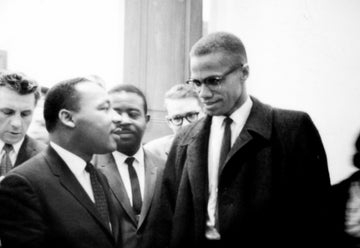
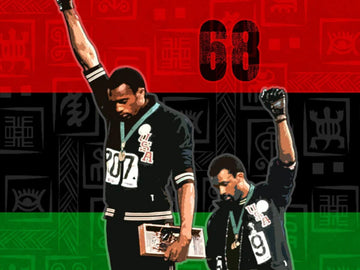
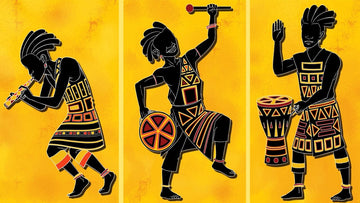



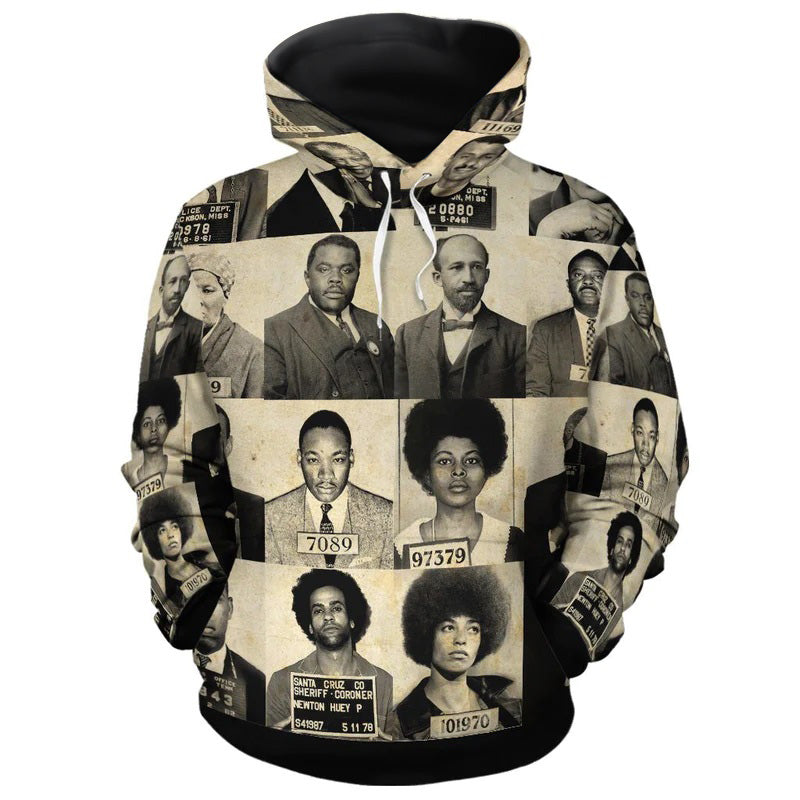

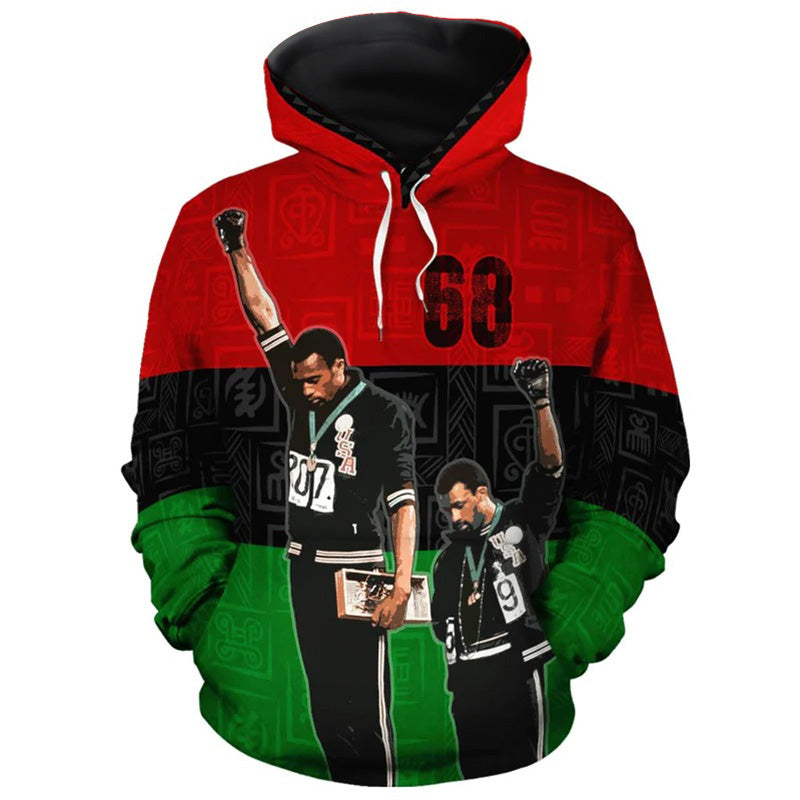




These two Great Black Men Made the Ultimate Sacrifice for Black Equality. Therefore Every Black Person Should Strive for Advancement and Black Excellence. Let’s Not let them Die in Vain!!!